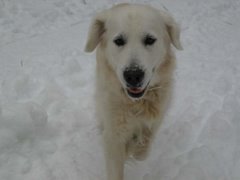1 – BEAUTY AND THE BEAST/HOLD FAST TO
DREAMS
Baker, Nancy. A Terrible
Beauty. Gothic Vampire novels, about the “inner vampire”, set in Toronto.*
Bell, William. Crabbe. A
teenage boy struggles with alcoholism.*
Brooks, Martha. Bone Dance.
A teenage girl from Toronto travels west and meets a boy haunted by
nightmares.*
Burnard, Bonnie. A Good House.
Three generations in the life of an ordinary small town family from the 1950's
to the 1990's. 1999 Winner of the Giller Prize.*
Crutcher, Chris. Staying Fat
for Sarah Byrnes. Male/Female relationships.
Garland, Alex. The Beach.
A Lord of the Flies for Generation X. Richard and his friends find a
beach in Thailand where life seems ideal until conflicts with nature, armed
guards, and each other create a nightmare.
Hemingway, Ernest. The Old Man
and the Sea. An old man struggles to bring in a marlin.
Hospital, Janette Turner. Tiger
in the Tiger Pit. The family secret explodes at a birthday party.*
Hubert, Cam. Dreamspeaker.
An aboriginal boy seeks help from a wise elder.
Hughes, Monica. Hunter in the
Dark. A teenage boy pursues his dream, despite his illness.*
Laurence, Margaret. The Stone
Angel. An old woman examines her relationships in life.*
Lee, Harper. To Kill a
Mockingbird. Jem and Scout learn about prejudice from their townsfolk and
about ideals from their father.
Major, Kevin. Hold Fast. A
teenage boy and his cousin flee an oppressive father to search for freedom and
a sense of family.*
Melling, O.R. Druid’s Tune.
Fantasy. Teenagers travel to the time of the Celtic Druids.
Rawlings, K . Harry Potter.
A teenage boy goes to a school for magicians and finds adventure.
Salinger, J.D. Catcher in the
Rye. Holden Caulfield, isolated from his peers, seeks meaning in the adult
world and his family.
Shields, Carol. The Stone
Diaries.*
Steinbeck, John. Of Mice and
Men. Two friends seek their dream and find a nightmare.
Westall, Robert. The Promise. Romance.*
Powered by ScribeFire.


